Search
Search Results
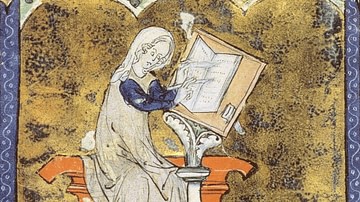
Definition
Marie de France
Marie de France (wrote c. 1160-1215 CE) was a multilingual poet and translator, the first female poet of France, and a highly influential literary voice of 12th-century CE Europe. She is credited with establishing the literary genre of chivalric...

Definition
Alien and Sedition Acts
The Alien and Sedition Acts were four laws passed by President John Adams and the Federalist-controlled Congress in 1798 that restricted immigration and free speech in the United States. Framed by the Federalist Party as a necessary measure...
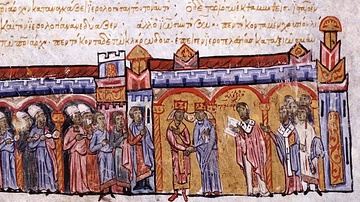
Definition
Michael IV the Paphlagonian
Michael IV the Paphlagonian was Byzantine emperor from 1034 to 1041 CE. He had an affair with Empress Zoe, then married her and was crowned emperor after the death of her first husband, Romanos III. He ran a competent regime that kept the...
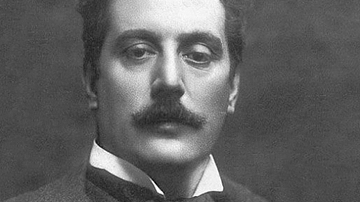
Definition
Giacomo Puccini
Giacomo Puccini (1858-1924) was an Italian composer best known for his operas La Bohème, Tosca, Madama Butterfly, and Turandot. Puccini drew inspiration from a wide range of literary sources, and his late Romantic music with its immortal...
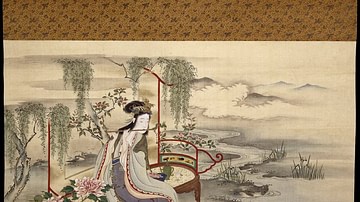
Article
Song of Everlasting Sorrow
The Song of Everlasting Sorrow is a narrative poem of the Tang Dynasty (618-907 CE) inspired by the love affair between Xuanzong (r. 712-756 CE), the seventh emperor of the dynasty, and his consort Lady Yang. It was written by the Chinese...

Article
Love, Sex, & Marriage in Ancient Rome
Love, sex, and marriage in ancient Rome were defined by the patriarchy. The head of the household was the father (the pater familias) who had complete control over the lives of his wife, children, and slaves. This paradigm was justified...

Definition
Cleopatra VII
Cleopatra VII (l. c. 69-30 BCE, r. 51-30 BCE) was the last ruler of Egypt before it was annexed as a province of Rome. Although arguably the most famous Egyptian queen, Cleopatra was actually Greek and a member of the Ptolemaic Dynasty (323-30...
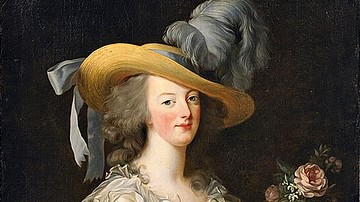
Definition
Marie Antoinette
Marie Antoinette (l. 1755-1793) was the queen of France during the turbulent final years of the Ancien Régime and the subsequent French Revolution (1789-1799). With the ascension of her husband Louis XVI of France (r. 1774-1792), she became...

Definition
Tang Dynasty
The Tang Dynasty (618-907 CE) was one of the greatest in Imperial Chinese history. It was a golden age of reform and cultural advancement which lay the foundation for policies which are still observed in China today. The second emperor, Taizong...

Definition
Henry VIII of England
Henry VIII of England ruled as king from 1509 to 1547. The second Tudor king after his father Henry VII of England (r. 1485-1509), Henry had inherited a kingdom which enjoyed both unity and sound finances. Famous for his six wives as he searched...